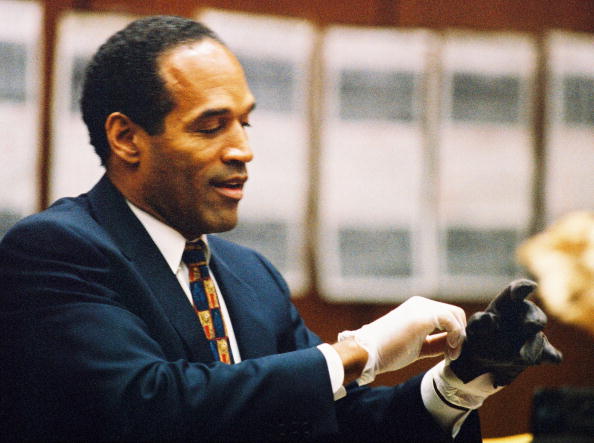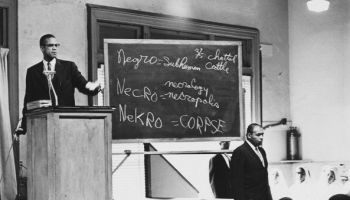By Hakim Hasan
When Ishmael Reed, professor emeritus at the University of California Berkeley, went shopping his book Barack Obama and the Jim Crow Media: The Return of the Nigger Breakers to the American publishing establishment, he came away with one nagging question: Are Black writers with a strong left of center political bent an endangered species in post-racial America?
Reed is the author of at least 40 books. His prodigious body of work includes novels, plays, and essay collections. He has received numerous awards, including a Guggenheim Fellowship in 1975 and MacArthur Genius Award in 1998.
Yet, despite Reed’s prominence as a writer and intellectual, he says that no mainstream publisher in the United States would publish Barack Obama and the Jim Crow Media, a scathing critique of the American media’s portrayal of President Obama.
His ordeal represents a case study in understanding the troubles that even established Black writers like Reed have to confront.
Reed who says that he lives in a remodeled house in the ghetto of Oakland during an interview refers to a passage in his book about this experience:
“When my novel “Flight To Canada was published in 1976, I could not have imagined that I would live to see a time when points of view of African-Americans in the media and elsewhere would be so marginalized that I would be in the position of the nineteenth-century fugitive slave orator.”
Eventually, Baraka Books, based in Canada, published his book.
Does this mean that there is no home in the contemporary mainstream trade publishing landscape for Black writers with a strong political bent?
“It is hard for everyone to get published these days,” says Barbara Lowenstein, Reed’s literary agent and one of the top agents in the business. “Sales figures and marketing are also major factors.”
Others in the industry agree that these are huge obstacles, but also point to generational, cultural and political gaps.
“In this climate, traditional book sales continue to decline. Mainstream publishers in order to survive are even more interested in books that sell larger numbers,” says Paul Coates, founder and publisher of Black Classic Press, who believes that radical writers like Reed will continue to have a difficult time. “Anytime you start talking truth, white readers run from you and black readers run too.”
Carleen Brice, author of Orange Mint and Honey, whose book was made into the very successful film Sins of the Mother that aired on the Lifetime Movie Network says, “It is really hard out here for Black writers. The publishing industry has been hit hard by the economy.” Her blog, “White Readers Meet Black Writers,” was started to address the segregation of books by Black authors in bookstores.
But for others the difficulty Reed says he faced in seeking a publisher goes even deeper.
“We are seeing the end of an era in mainstream publishing where editors who at best understood civil rights movement existed are no longer at the table,” a veteran literary agent who agreed to be interviewed but not identified by name told newsone.com “Now there is an entire crop of younger editors making decisions who have very little depth of understanding of the Black political and cultural experience.
The agent added: “I would doubt that there are three people in those positions who can make an informed decision about Ishmael Reed’s importance as a writer.”
Haki Madhubuti, the writer, poet, and Ida B. Wells Barnett University Professor at DePaul University, founded Third World Press during the Black Power movement in the 1960s in response to the difficulties Black writers faced, except a select few, getting their books published by mainstream publishers.
“Ishmael Reed is a world-class writer,” Madhubuti says. “He did not approach me about his book. Had he done so, I would have put his book on the fast track to be published.”
Black left of center writers are not immune to the vagaries of the marketplace, he says, admitting that publishers his size can’t compete with the mainstream publishing establishment when it comes to paying writers advances. In order to financially survive, they have to search for the best deal in terms of an advance as part of a myriad of revenue streams.
Several publishing industry insiders maintain that Reed’s situation is a complex interplay of books sales, the market for serious black non-fiction, and the sheer number of books published about President Barack Obama—as opposed to simply a complex interplay of race and politics in mainstream publishing.
According to booksinprint.com, there were approximately 109 adult and 23 juvenile Obama-related titles published in 2010.
But for Reed and other critics of the publishing industry’s racial politics, race is still significantly in play.
He cites the cases of Kathryn Stockett, the white author of The New York Times bestseller, The Help, a novel about a Black nanny, and Margeret Seltzer, the white author of Love and Consequences, a fabricated memoir about a white girl growing up in South-Central Los Angeles, as prima facie cases of white authors getting a pass to write about black life while serious Black authors struggle to get book contracts.
And despite the fact that Terry McMillian’s novel Getting To Happy, Isabel Wilkerson’s “The Warmth of Other Suns,” and even rapper Jay-Z’s memoir Decoded all recently reached “The New York Times” bestseller list, the struggles facing Black writers like Reed persist.
“There is a conscious effort not to publish these voices,” says the veteran agent—who, like others we interviewed, was hesitant to go on the record about this troubling trend. “The other part of the equation is if a white journalist from The Nation or the Washington Post wrote a book on the same topic, I bet you they could get published. I would bet on that.”
RELATED:
The racial double standards behind Charles Rangel’s censure
















